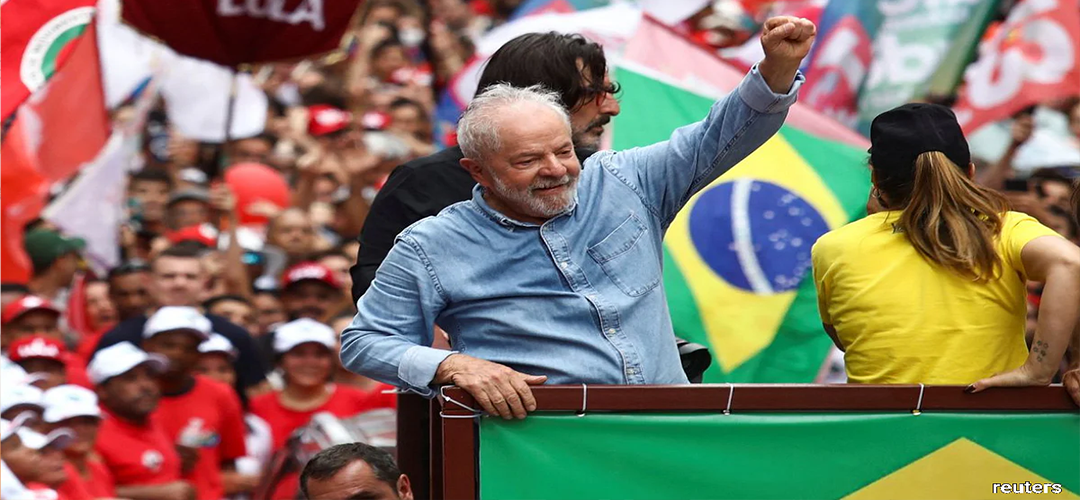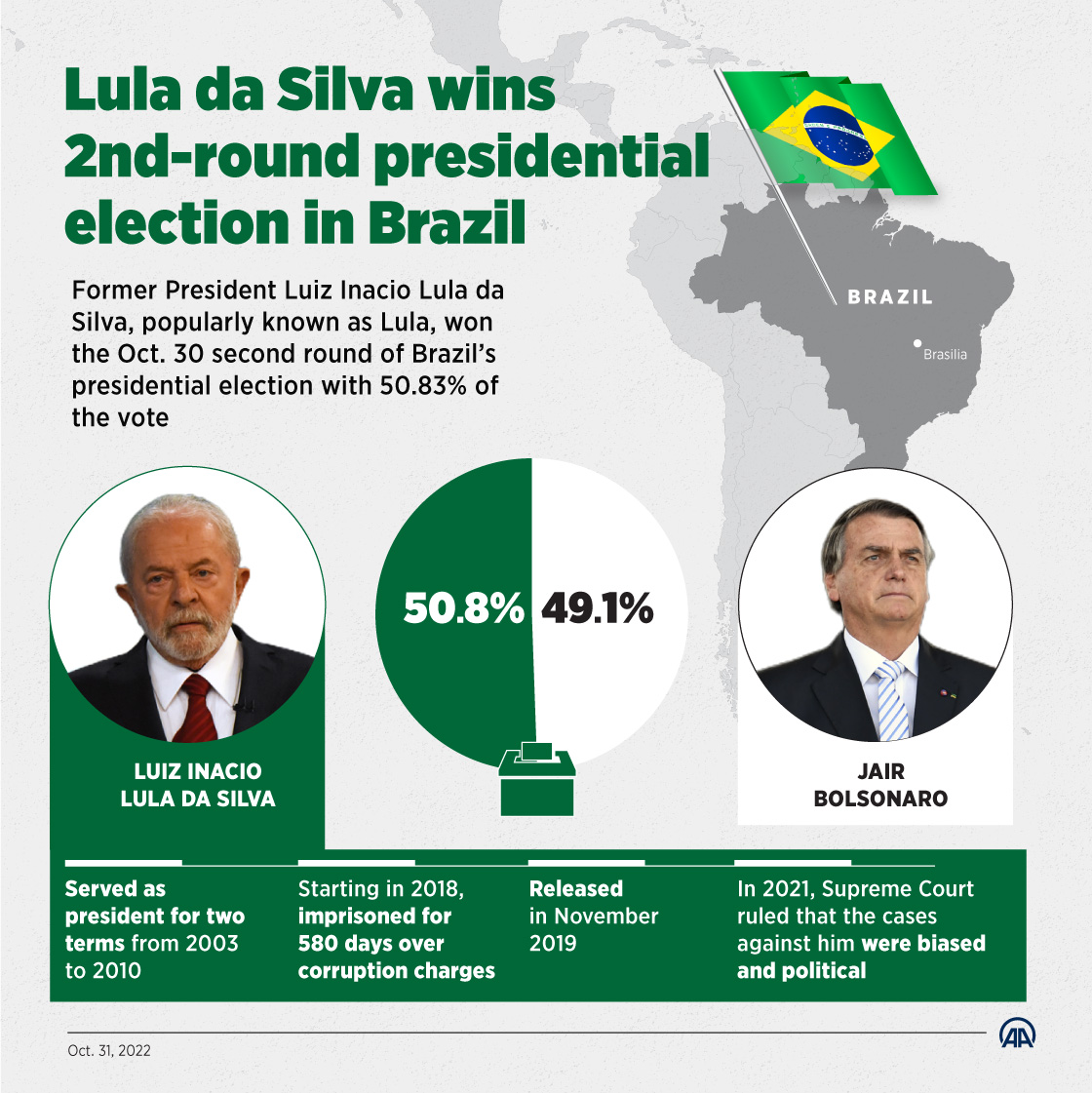THE SECOND COMING
November 5, 2022 | Expert Insights

Luiz Inacio Lula da Silva, also known as Lula, narrowly defeated incumbent far-right politician Jair Bolsonaro in an election that went to a photo finish. Mr Bolsonaro performed better in the first round than most pollsters anticipated but was pipped at the finishing post by his rival. The final score read -Lula's 50.9 per cent and Jair Bolsonaro's 49.1 per cent.
In a throwback to the 2020 U.S. Presidential Elections, Bolsonaro supporters have streamed into the streets, blocking roads and calling Lula's victory rigged. There have been calls on the powerful military to step in and reinstate Bolsonaro and put the "corrupt criminal" Lula back into jail! Jair Bolsonaro has asked his supporters to quit the streets but has refused to concede his electoral defeat.
Background
President-elect Lula, who takes over the Presidentship in January next year, has had a mixed record. In his two terms as president (2003-2010), he has been credited with extensive welfare programmes that benefited millions of marginalised Brazilians. His supporters highlight that he pushed for gradual redistribution while concentrating on prosperity and welfare. He also opted for a cooperative strategy that sought cooperation rather than confrontation with the country's elite. However, once he had quit the presidency, he was in the eye of a massive corruption scandal that implicated a wide swathe of the political establishment. He was convicted in 2017 for accepting bribes ($.2 million) for influence peddling, money laundering etc. and was sentenced to 9 ½ years in prison, which was increased to 12 years in 12 by an Appeal Court. However, in 2021, the Supreme Court annulled the convictions, calling them biased.
Bolsonaro, an ex-military officer and considered an outsider in Brazilian politics, rode the anti-establishment wave against widespread corruption in Brazilian politics. Casting himself as an "insurgent candidate" with little or no care for political correctness, he modelled himself on Donald Trump. The media soon labelled him "Trump of the Tropics." However, like President Trump, his popularity grew amongst the country's large Evangelical Christian population and those fed up with the rising crime and violence in the urban spaces. He also reformed the national pension scheme raising the minimum retirement age, which was a big policy win. But the one issue which got him maximum support at home, and international criticism, was allowing the commercial exploitation of the Amazon rain forests by all but turning a blind eye to companies indulging in large-scale logging. The fact that, like Donald Trump, he lost by a slender margin clearly indicates that his right-wing, 'Brazil First' policies have struck a chord amongst a large segment of the population.

Analysis
The trend towards the left is clearly visible in South America. In addition to Chile, Mexico, Peru, Colombia, Honduras, and Argentina, other Latin American nations favouring progressive parties over the political right include Brazil, which recently elected a left-leaning president. A pink tide sweeps across the Americas, with Leftists now ruling most of the continent's major countries.
While Lula has promised a fairer tax system, lifting the cap on public spending, raising the minimum wage, and enhancing social welfare, he has provided very little information or cost. Although it is evident that his policies are widespread, Lula faces numerous challenges in putting them into practice because the commodities that allowed him to implement many of these initiatives during his former administration are long gone.
Winning based on a campaign that combined the defence of democracy and the environment with the advancement of social justice, Lula has an arduous task ahead. While Lula will find a favourable regional environment, his greatest challenge will be to live up to Brazilians' expectations. He inherits a different Brazil. The commodity boom that previously funded his ambitious welfare programme is no longer present. The slowdown in China, Brazil's largest trading partner, has harmed the economy, which is expected to grow at a 0.6 per cent annual rate next year. This, combined with the economic effects of COVID-19, has resulted in a significant increase in poverty and hunger, affecting approximately 33 million people. Lula would also face opposition from a hostile Congress, where conservatives remain powerful.
Despite Bolsonaro's earlier allegations that he might have rigged the elections, heads of state worldwide congratulated Lula on his victory. President Joe Biden was unequivocal and precise in his remarks, describing the election as "free, fair, and credible."
The road ahead is rocky, but his track record demonstrates that he is a savvy politician and capable administrator. He may be able to work his way past Brazil's status quo elites to effect incremental change.
Brazil is in for a long-drawn political battle which threatens to divide the country.
ASSESSMENT
- China is Brazil's largest trading partner, surpassing even the United States. India has limited clout with Brazil in comparison despite sharing the BRICS platform. The Indian foreign policy elite should use Lula's election in Brazil as an opportunity to identify institutional means of strengthening economic ties.
- The IBSA (India-Brazil-South Africa) trilateral should be revived and prioritised over BRICS, drawing on Lula's focus on global political issues.








Comments